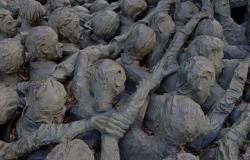
Many contemporary humanitarian organisations derive their legitimacy from their claims to protect civilians. Yet, what these organisations do in its name includes a diverse and contested range of activities that are often far from what global publics and affected populations understand as constituting protection. As others have argued, this detracts from honest discussions about when and how humanitarians are well placed to keep civilians safe from violence and threats. To begin to address this gap, we review what three well-known humanitarian organisations publicly say they have done to protect strangers across three violent protracted crises. We capture how they portray their activities, the logics they attribute to them and what is left unsaid. Our findings suggest that humanitarians must, once again, collaborate over a shared protection framework that better signals what others can expect from them. We also identify an emerging convergence around the notion that peer-to-peer denunciations, conflict resolution, supporting self-protection and community protection strategies and improving state-society relations can be important forms of protection activity. There is, therefore, a need for a public stocktake over what can, cannot, should and should not be done to protect civilians in such contexts.
Policy Implications
- Humanitarian organisations that claim to provide protection should adopt Bradley's alternative framework that puts violence and threat reduction back at the centre of activities. This will help them to prioritise activities that are more widely understood as providing protection by those outside of the sector.
- Humanitarian organisations must provide more evidence of when, or plausible theories of change for how, their activities lead to protection outcomes. This includes how efforts to support self- and community-protection strategies offer a way to begin to answer the challenges raised by proponents of the Triple Nexus.
- Protection-focussed humanitarian organisations should build on recent peer-to-peer critiques to spurn a wider stocktake of what can, cannot, should and should not be done to protect civilians in violent protracted crises. This stocktake should occur in public to renew their legitimacy as authorities that shape protection norms, laws and practices.
Photo by Fotografiaidarte